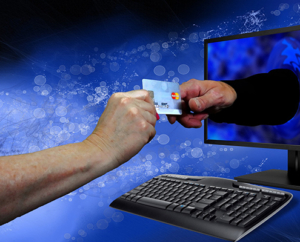Social Security numbers and credit card numbers are not the only types of data that hackers are after. Now, they are looking at frequent flyer accounts, and they are stealing reward miles, and then selling them online.

How do Hackers Steal Frequent Flyer Miles?
As with other types of ID theft, hackers use info that they have illegally obtained to access frequent flyer accounts. With more data breaches happening than ever before, hundreds of millions of records are exposed, and thus, hackers have great access to the personal info they need to get into these accounts.
What do Hackers Do with Frequent Flyer Miles?
It is hard for hackers to use these miles on their own because often, the travel has to be booked in the name of the owner. However, it is very easy to transfer these miles to other accounts or to use the miles to purchase other rewards. Usually, no ID is needed for a transfer like this. This is also difficult to track because hackers use the dark web and VPNs to remain anonymous.
Hackers also sell these miles, and they catch a pretty penny. For airlines like British Airways, Virgin Atlantic, and Delta, they can get hundreds, or even thousands of dollars for their work.
In addition to transferring these miles from one account to another, hackers are also selling the account’s login information. Once someone buys this, they can now get into the owner’s account and do what they want with the miles.
Protecting Your Frequent Flyer Miles
There are some things that you can do to protect your frequent flyer miles. You should check your frequent flyer accounts regularly using your airlines mobile app. Change all your airline passwords and never re-use passwords and set up a different password for each account.
Other things that you can do include the following:
- Protect your personal information by making sure every online account has a unique and difficult to guess password.
- Use a dark web scan. This will show you if any personal information is out on the dark web.
- If you do find that your miles have been stolen, it also is probable that your personal information has been compromised, too. Monitor your credit report and check it often for anything that looks odd. This is a big sign of an issue.
Robert Siciliano personal security and identity theft expert and speaker is the author of Identity Theft Privacy: Security Protection and Fraud Prevention: Your Guide to Protecting Yourself from Identity Theft and Computer Fraud. See him knock’em dead in this Security Awareness Training video.
Comments